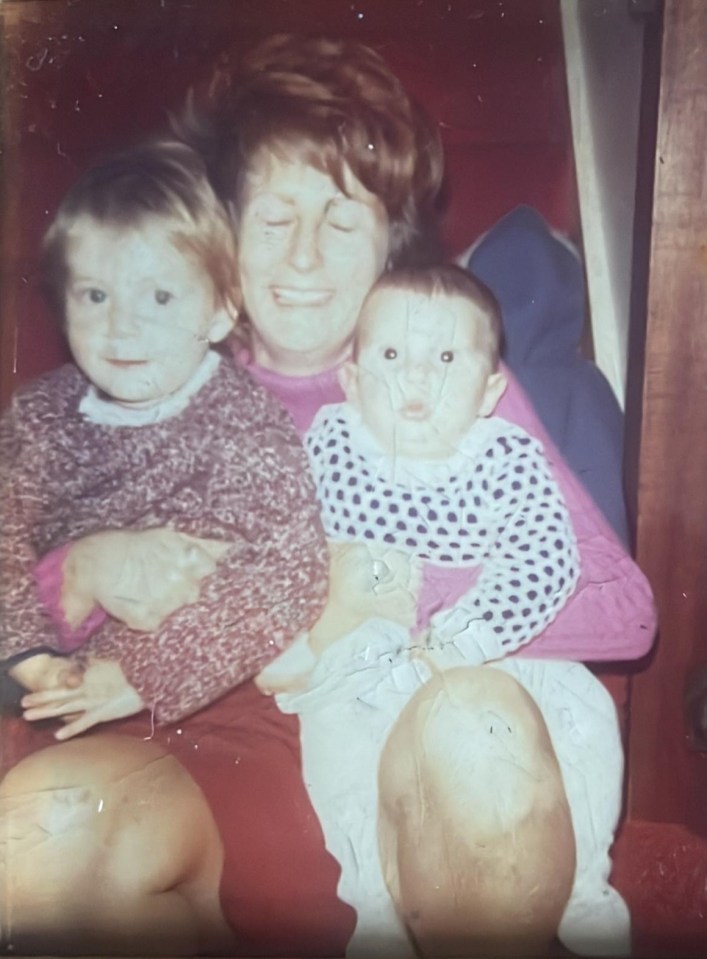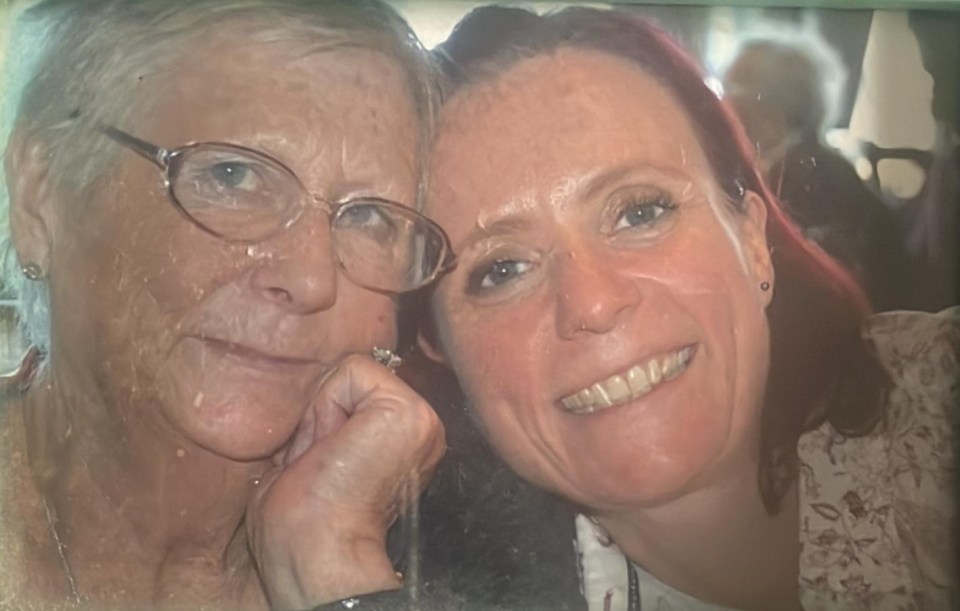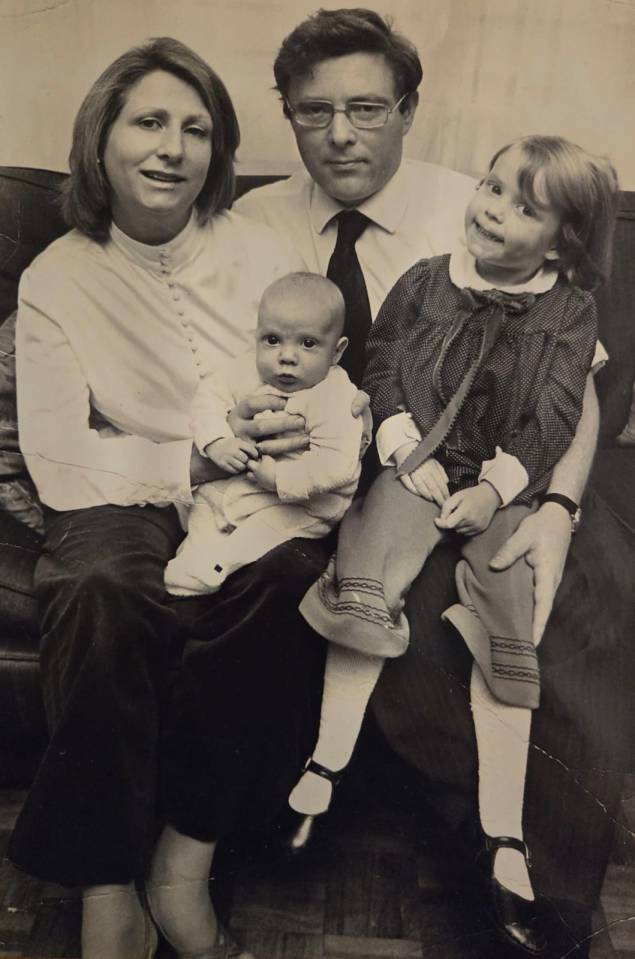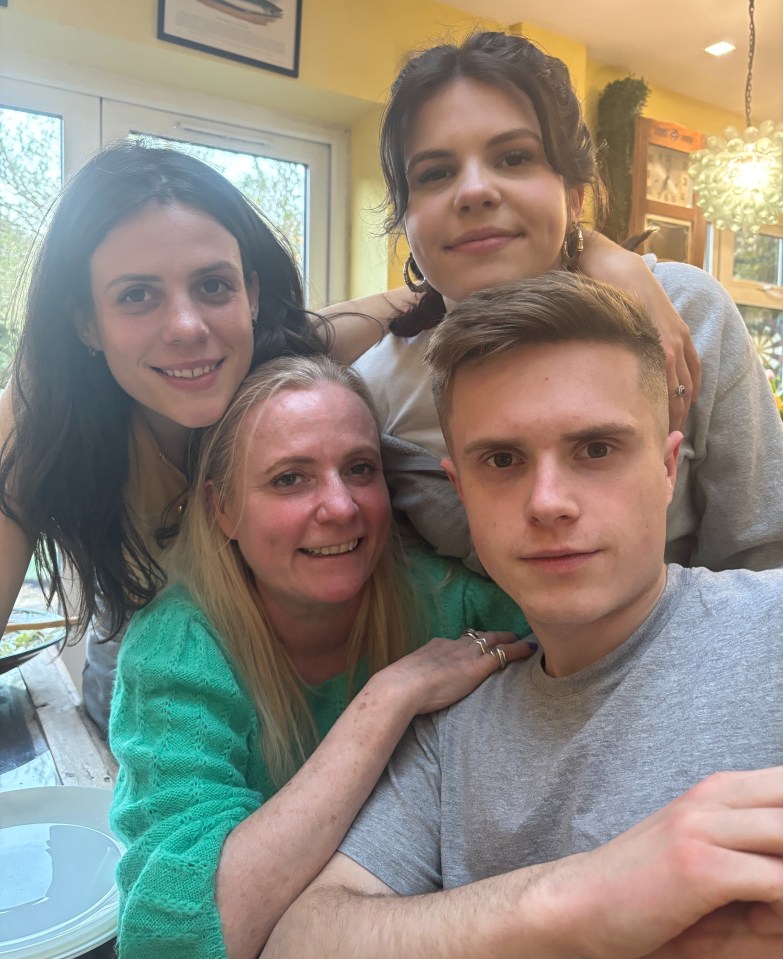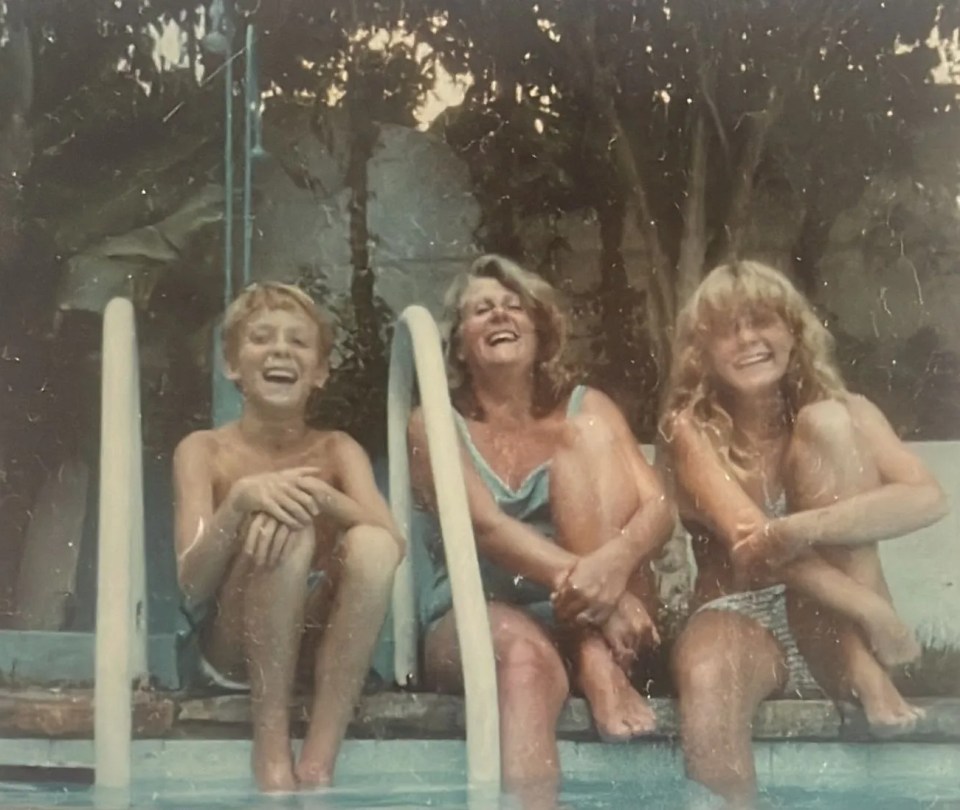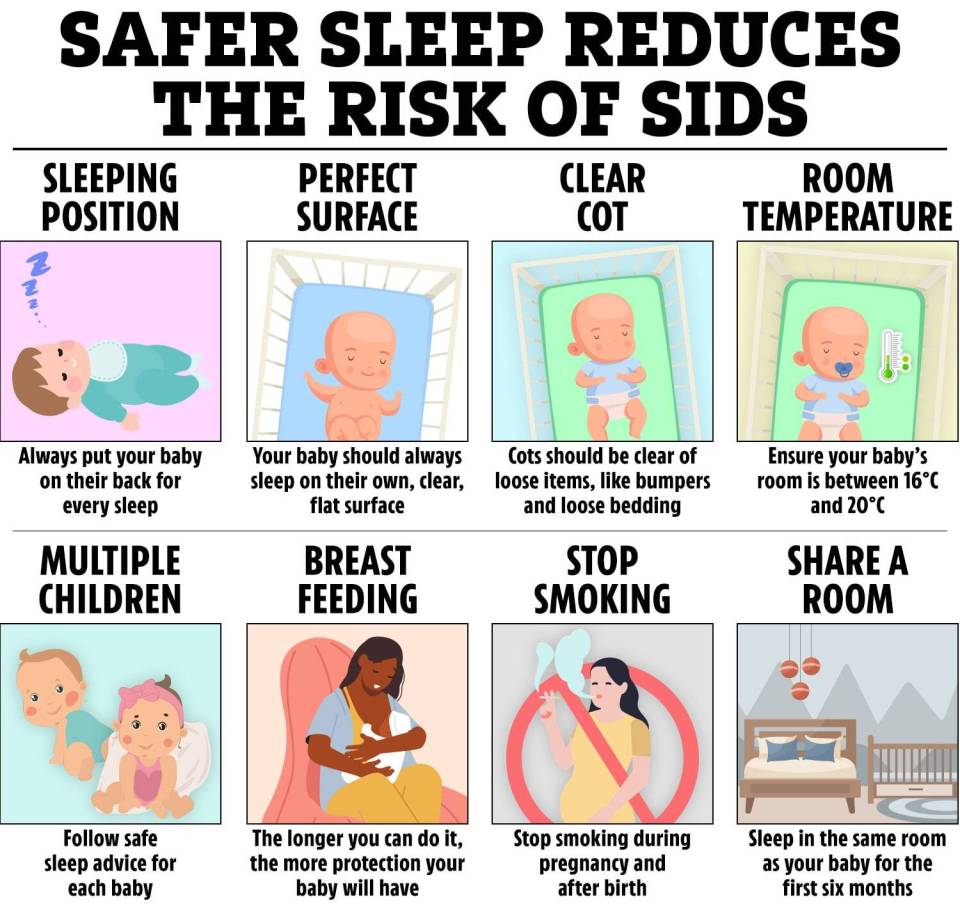I WILL never forget the morning we found my nine-month-old brother Neil dead in his cot.
Mum had come to wake me first so we could get the baby up and dressed together.
I was three and a big girl now, with big sister responsibilities and a grown up-looking bedroom with orange flowery wallpaper – the sort interior designers now call retro.
I was already awake, and I held mum’s hand as we walked to Neil’s room. She let me go in first.
I peeked over the top of the cot and said: “Neil’s not there, where is he?”
Mum rushed over, pulled the blanket back and her face was frozen. It was so scary.
Did I scream or was it her? Someone screamed. And then it becomes a blur.
The shockwaves of that morning continue to affect our family, from Beckenham, London, over 40 years later.
It was February 1973, and cot deaths, as they were then referred to, were something that happened to other people, spoken about in hushed tones, and, let’s be honest, often viewed with an element of suspicion.
It was also a time when the best-selling book on babies, which had pride of place on my parent’s bookshelf, told mums and dads to put tots to sleep on their stomachs and wrap them up warmly.
In 2025, thank goodness, there is far more awareness of sudden infant death syndrome (SIDS) – the sudden and unexpected death of a baby where no cause is found – which killed my brother.
We now know the safest way is on their backs and a cool environment, with no danger of overheating, but SIDS still affects around 200 families every year in the UK, and the emotional toll of the losses remains as difficult as ever.
After Neil died, my mum Carol and dad Ian became advocates for the Foundation for the Study of Infant Deaths, which is now The Lullaby Trust.
Dad, a journalist, wrote a heart-wrenching story for the local newspaper, which described that terrible morning.
I even stayed up ‘late’ with nan and grandpa to watch him speak about it on the BBC TV show Nationwide, and there were numerous bake sales at local fetes to raise funds.
When my brother Andrew came along in 1974, I think it was this very newspaper that published an article with a photo of our family alongside an article about how it’s possible to exist after losing a child.
We looked happy – but the problem was, we were falling apart.
We’d had no proper support, no room to grieve, and we still had so many questions about how and why Neil was gone.
This came to something of a halt when dad’s job took us to live in Paris.
A line of some sort was drawn, except, of course, it wasn’t.
We were left with the black silent hole of his absence. There was nothing that could fill the ghastliness of my son not crying
Carol
Mum threw herself into Paris life. She had learnt French as a teenager and had already lived there in the 60s, working as a bilingual secretary for the Ariane space project.
But she had changed. I knew it, and I could feel it more and more as I grew older.
Dad’s job, now foreign correspondent, took the family to different places – Brussels, Jerusalem, Bonn.
Mum played the part of the supportive other half, but she had lost her mojo.
She’d had all sorts of ambitions – teacher training college, a master’s degree, the job for Arianne – but she never really went back to work.
Over time, she stopped being sporty, when she used to play tennis, hockey and swim a lot, and she put on weight.
There was drinking, perhaps not that unusual in an expat journalist house in the 70s and 80s, but still, it was different.
Don’t get me wrong, Andrew and I had a marvellous childhood, full of love, fun holidays, travel, fascinating people, and lively chats.
But as we got older, we could feel the tension growing between mum and dad.
One day, there was yet another stressful exchange between our parents, with mum flouncing off to bed.
This time, Dad, teary-eyed, said: “She has never been the same since Neil died.”
I was stunned. I had never heard him say Neil’s name before.
I must have been about 18. I’d grown up used to saying: “Oh yes, I had a brother who died of cot death,” without really connecting the words with my memory of that morning or my understanding of what it must have done to my parents.
After that, I did ask a few more questions.
My aunt sent me that first article dad had written; my uncle agreed that mum was never the same since Neil’s sudden death.
Then, in 2000, Dad died, aged just 59, of cancer. He missed meeting his first grandchild, my daughter, Izzy, by four months.
What is sudden infant death syndrome (SIDS)?
Sudden infant death syndrome (SIDS) is the sudden and unexpected death of a baby under the age of 12 months where no cause is found.
Around 89 per cent of deaths happen when the tot is under six months old.
It is relatively rare, with 182 babies dying from SIDS in the UK in 2021.
While doctors don’t know exactly what triggers it, there are ways to significantly reduce the chances of SIDS occurring:
- Put your baby on their back for all sleeps – day and night
- Share a room with your baby for the first six months
- Place your baby on their own, clear, flat sleep surface (e.g. cot or Moses basket)
- Keep your baby smoke-free during pregnancy and after birth
- Never sleep on a sofa or armchair
- Do not co-sleep if you or anyone in the bed has been drinking alcohol, smoking, or taking drugs or medication that makes you drowsy
These things are especially important for babies who were born prematurely or of a low birth weight, as they are typically at higher risk of SIDS.
Source: The Lullaby Trust
Again, this was all played out in public, with dad writing his final article days before he left us.
He described his feelings, the ones he wouldn’t talk to us about, to the readers of The Times newspaper.
In that article, he wrote: “My pregnant daughter has a little lump inside her kicking and fighting for life.
“I have a little lump in me which is kicking and fighting for my life and it will win.”
He must have been thinking about Neil, but, again, we did not talk about it.
Dad’s death catapulted mum into a deep despair.
More drink, angry moods, strange behaviour, until eventually, she moved to a home in Deal, Kent, where she left us in February 2025.
Did my mum resent me because I survived?
In her last years, mum had started talking about Neil, but our relationship was so strained by then, I didn’t have the courage to ask her more.
Did she resent me because I survived? Was she worried that Andrew might feel he was here because Neil wasn’t? Did she blame dad for the media coverage?
So many questions. In the end, I asked none.
Who could ever get over the death of a child? I can’t imagine anything happening to my amazing three children, Alfie, Maddie and Izzy, or to my brilliant niece and nephew, currently living, as fate would have it, in Paris.
My family’s experience could have turned me into an anxious mother.
But by the time Izzy arrived, there was so much good advice on how to keep babies safe when they are sleeping, I was able to build a bedtime and sleep routine quickly, and with confidence.
It’s thanks to The Lullaby Trust, the charity that mum and dad were such great advocates for in its early days.
We were pleased to reconnect with them when mum died to make them the beneficiaries of all donations for her.
It was at mum’s funeral that I met her friend from the local writer’s club.
She asked me if I had read mum’s story, written as part of their ‘17 minutes series’, where members were given 17 minutes to write something down.
You have heard my story, now here is my mum’s.
Carol Anne Murray, mum of three, survived by two, written in 17 minutes, 45 years after losing her son, Neil.
We talked together, Ian and I. We spoke about everything under the sun, except for the one great hole that was in our lives.
How could it have happened? We had a beautiful daughter, chatty and bubbly. We now had a son.
How wonderfully lucky, we thought, one of each. How neat.
But then, one morning, I went to his cot to get him up and there was no response.
The unbelievable had happened. Why? How? I screamed. Ian came upstairs. He was silent.
It was then that I knew he had already gone into the bedroom and found what I had found. He had gone downstairs in disbelief.
We called an ambulance, of course. We hoped desperately that something could be done.
But what could they do? They just swaddled him and took him away.
Forty years later I still feel it, just as if it had happened yesterday
Carol
We were left with the black silent hole of his absence.
Later that day the doctor told us that it was certainly a case of SIDS.
It now had a name. But that was all. There was nothing that could fill the ghastliness of his not crying.
Neil had cried a lot. I wondered if his crying had been a warning. Had he known all along he would die?
But there was no going back, his absence was so obvious.
Our daughter’s tears said it all. We would never be able to see him again.
One day, as we walked home from nursery, we passed by a dead pigeon.
“Hmmmm,” she commented. “He’s just like Neil Bruce John, he won’t move again either.”
Her philosophical analysis became an acceptance.
We went on to have another son a year later.
Forty years later I still feel it, just as if it had happened yesterday.
I have never forgotten Neil Bruce John.
The ABCs of safer sleep
EXPERT help is freely available from The Lullaby Trust, which exists to keep babies safe by offering advice, and support grieving families.
By investing more than £12million in research, the charity has overseen the reduction of sudden infant death syndrome (SIDS) by 80 per cent, saving 30,000 babies since 1991.
It wants all families to know the ABCs of safer sleep:
- Always sleep your baby on their back, in a clear cot or sleep space.
Following these rules, day and night, will help reduce the risk of SIDS.
If you are grieving, you can find support on The Lullaby Trust website, by calling the bereavement helpline on 0808 802 6868, or emailing support@lullabytrust.org.uk.


